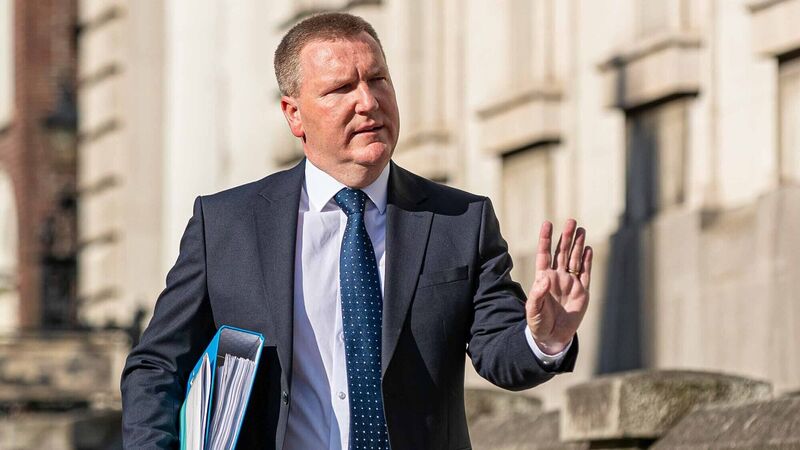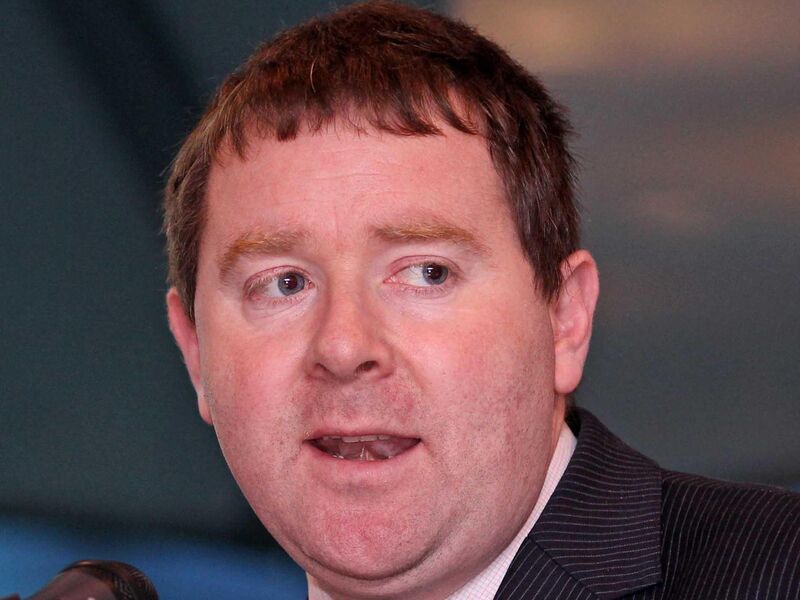Debate heats up over McGrath's plan for an infrastructure fund

Much less conventional was Finance Minister Michael McGrath's plan for a second fund. Picture: Damien Storan
When it first emerged several months ago, the idea of the Government running not one, but two wealth funds was a tad puzzling.
By this month, Finance Minister Michael McGrath had filled in some of the details. He would indeed seek to divert some of the many billions of euro flowing into the exchequer into a national savings or sovereign wealth fund, in a move last taken in the early noughties.
That's when the Government last scrambled to set up a wealth fund, then called the National Pensions Reserve Fund, and run by the Government's National Treasury Management Agency.
The pensions fund was financed from the enormous tax receipts of the late Celtic Tiger era and a then booming economy. However, famously, the sovereign wealth didn't last much beyond 2010, and was raided to meet the liabilities of international creditors under the onerous bailout.
But much less conventional was Mr McGrath's plan for a second fund, an infrastructure fund, that will be designed to ensure the infrastructure from housing to transport and healthcare would get built and delivered, and not fall victim to the next downswing of the economic cycle.
Business group Ibec weighed in with support and the idea looked set to get a fair wind from Government ministers and opposition politicians alike.
That was the case until this week when UCC economist Seamus Coffey pointed out the unusual aspect of a plan for any Government to run two wealth funds.
Writing in the Irish Examiner, the economist pointed out the proposed infrastructure fund had been mis-labelled and was a spending fund by another name, and should not be confused with a sovereign wealth fund, or a national pensions fund, or a national savings fund.

Mr Coffey's views carry some heft. He is a former chair of the Irish Fiscal Advisory Council, the watchdog set up amid the fallout of the disastrous banking and property market collapse.
Its purpose was to ensure the State would never again be facing bankruptcy and forced into agreeing stringent austerity conditions at the behest of external creditors.
Mr Coffey is also well known as the author of studies commissioned and published a few years ago by the Department of Finance into the almost magical fountain of payments flowing from corporation tax receipts paid into the exchequer by a handful of US pharma and tech giants.
The recent prosperity — and a good deal of the Government's spending commitments — have effectively been underwritten by a small number of US companies that have chosen to incorporate their international tax bases along with substantial facilities here in Ireland.
Mr Coffey wrote: "We find ourselves in an uncommon position: We are living way within our means".
A sovereign wealth fund, he said, made sense because the economy was operating at or close to capacity and could not absorb all at once the many billions of euro entailed in additional spending.
He said areas such as housing, healthcare, and transport infrastructure were obviously crying out for improvement, but the economy does not have surplus resources that can be directed to these areas at this time without running the substantial risk of stoking significant levels of domestic inflation.
He said more capacity would need to be nurtured first for more space to be opened up in the economy to absorb the spending. Mr Coffey said of the planned two funds, the national reserve fund and an infrastructure fund, that only one was a savings fund because an infrastructure fund was just another vehicle for spending.
He pointed out Government departments already have an infrastructure spending fund, called the capital spending envelope by the Government.
Infrastructure spending needed to be increased, but he said he had noted the many calls that had already been made to tap the infrastructure fund even before it has been established, for housing, transport, agriculture, and to prepare the economy for climate transition. All of this entailed spending, and not saving, he pointed out.
Turning to international best practise, Mr Coffey said the rules governing energy-rich Norway’s €1tn fund — the world's most famous sovereign wealth fund — forbid any of the resources being used domestically.
The purpose of the rule was to prevent any long queue of lobby and business groups looking to tap the public funds for their own industrial sectors. And proper wealth funds do not encourage the risk that politicians will engage in pork-barrel spending, he wrote, and Ireland’s proposed infrastructure fund falls somewhat short of the best ideals.
However, business group Ibec had earlier in the month set out its case for backing an infrastructure fund.
The new infrastructure fund, it said, would ensure much-needed capital projects would get built, no matter how the economy performs in future years.
In its submission ahead of October's budget, the employers’ body foresees the infrastructure growing to about €10bn by the end of next year, boosted by the €6bn already in the existing National Reserve Fund, and increasing in size in future years.
Ibec’s proposal would ensure capacity constraints facing employers would be tackled by ringfencing spending for key infrastructure such as housing, healthcare, and transport, and would be completed through the “spectacular” amounts of tax revenues flowing into the exchequer, said the Ibec officials. Its member firms were voicing “frustration” about capital projects failing to get the go-ahead, despite the substantial exchequer funds.
The huge tax flows were an “incredible opportunity” that would allow the Government to run huge budget surpluses, as long as the enormous funds from corporate tax receipts continue to flow.
Moreover, Ibec maintains an infrastructure fund would help send a signal to international companies that Ireland was on course to solve its many infrastructure deficits, and underpin future investment projects and prosperity.
And the business group said other huge future spending commitments, including on pensions as the population ages, and to prepare for a net-zero economy, will still require tax increases elsewhere.
It said there was a real risk that a sovereign wealth fund “breeds complacency” over funding of future spending demands, and that the a sovereign wealth fund could not be relied on to meet the full pensions bill.
Between Mr Coffey, the employers' group, and Mr McGrath, the debate over running two funds is heating up.










